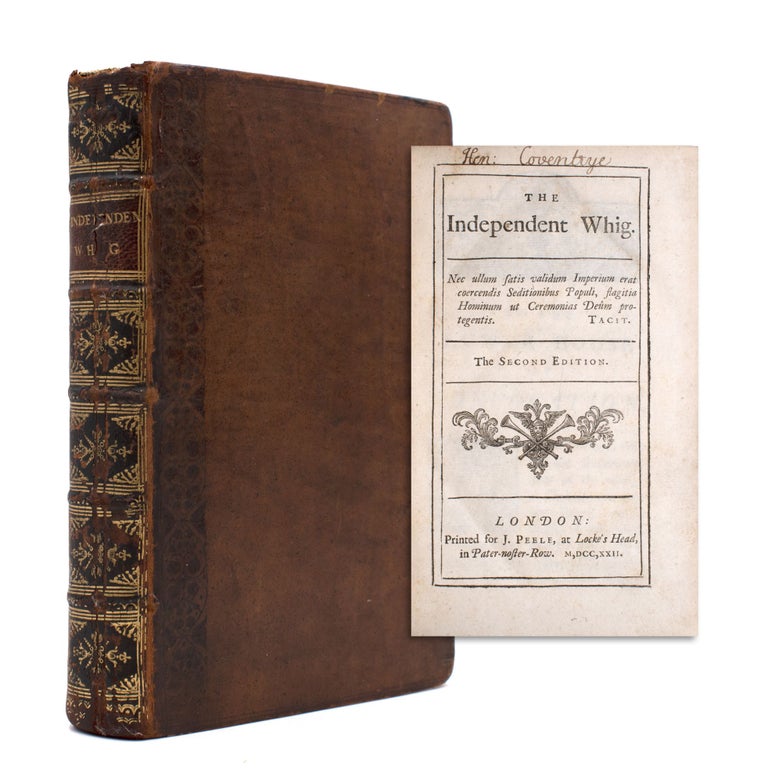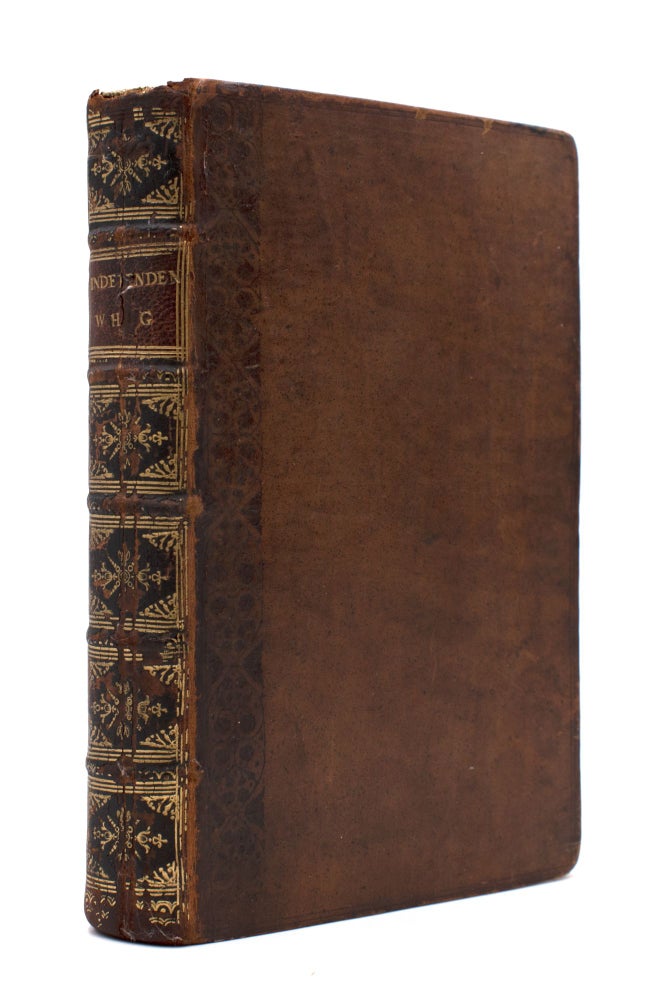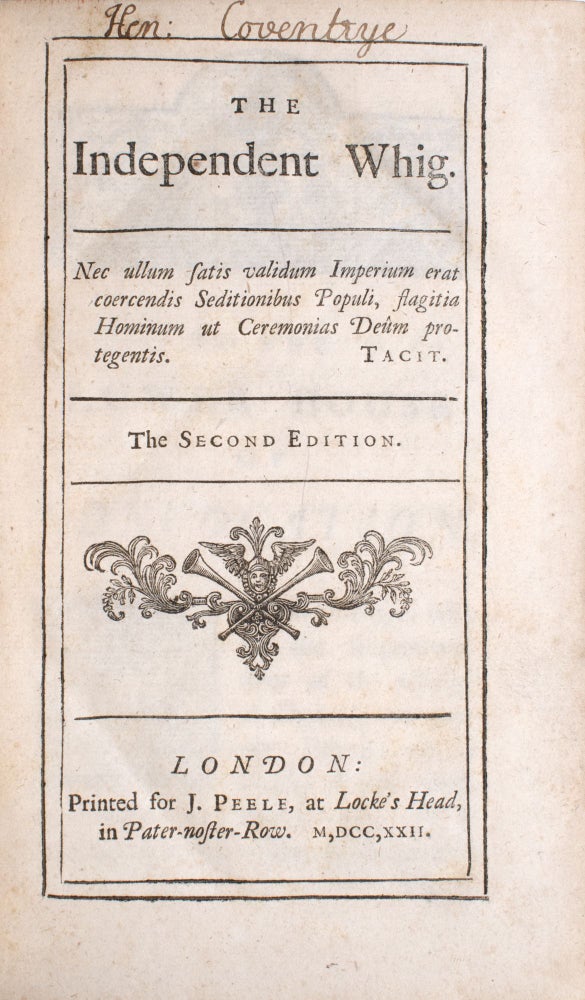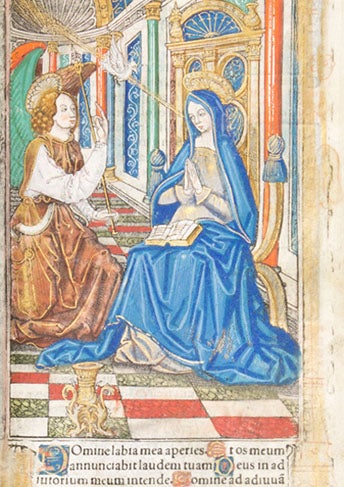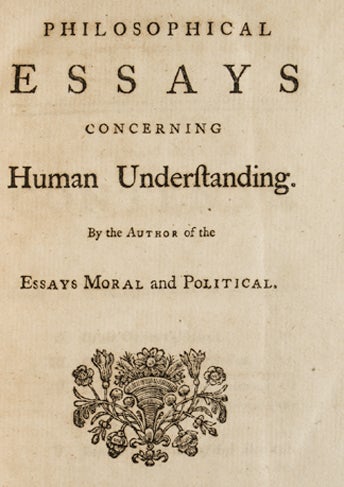The Independent Whig.
London: Printed for J. Peele at Locke’s Head in Pater-noster-Row, 1722.
Price: $1,000.00
About the item
Second edition. lii,444,[20]pp. 8vo. Contemporary calf, covers tooled in blind, spine gilt. Spine a bit abraded. Early owner's signature on title (Henry Coventrye). ESTC N7122; Sowerby 2739 (1752-53 edition).
Item #333425
"The Independent Whig, which appeared on Wednesdays from 20 January 1720 and ran for almost a year, censured what Gordon, Trenchard, and a third contributor—perhaps Anthony Collins—considered the ubiquitous and corrupt influence of high-church clerics propagating false divinity from their sacerdotal thrones … The Wednesday Whig and the Saturday missive [i.e., Cato's Letters] enjoyed immediate success, and repeated book-form printings of the Independent Whig and Cato's Letters during the 18th century, speak of an enduring reputation. Readers on both sides of the Atlantic and in the salons of continental philosophes found in these publications resonant rhetoric to sound their own causes" (ODNB).
Bailyn has called Trenchard and Gordon "the foremost libertarian thinkers of the early 18th century" and their works, widely read in America, would have a profound effect on the Founding Fathers. Benjamin Franklin quoted extensively from the Cato's Letters as early as 1722, while writing under the pseudonym Silence Dogood. John Adams, Thomas Jefferson and George Washington all owned copies of both the Independent Whig and Cato's Letters and referenced them in their letters and writings. Reminiscing in 1816 about the 1771 trials of the British soldiers indicted for the Boston Massacre, John Adams wrote to Jedidiah Morse: "Standing Armies, in time of peace, stationed in populous Cities to preserve internal peace, Cato’s letters & the Independent Whig, and all the Writings of Trenchard, & Gordon ... & all the writings relative to the revolutions in England, became fashionable reading."
The present edition reprints the Independent Whig, no. 1-53, Jan. 20, 1720 - Jan. 4, 1721, originally published as a weekly periodical and first published as a collected edition in 1721 (comprising the first 53 numbers). The present second edition followed. Later editions included all 74 letters and was expanded to two volumes in 1752, three volumes in 1735 and four volumes subsequently. Early editions of Trenchard and Gordon's works are rare.
This example with provenance to Henry Coventry (likely Henry Coventry (c. 1710–1752) English religious writer).

